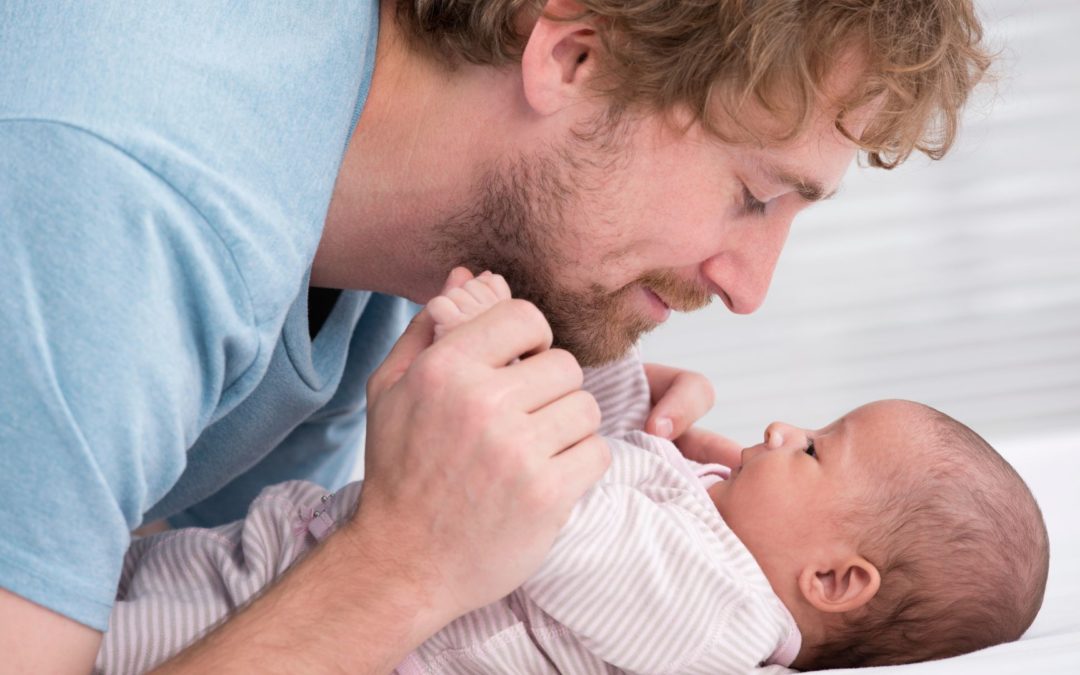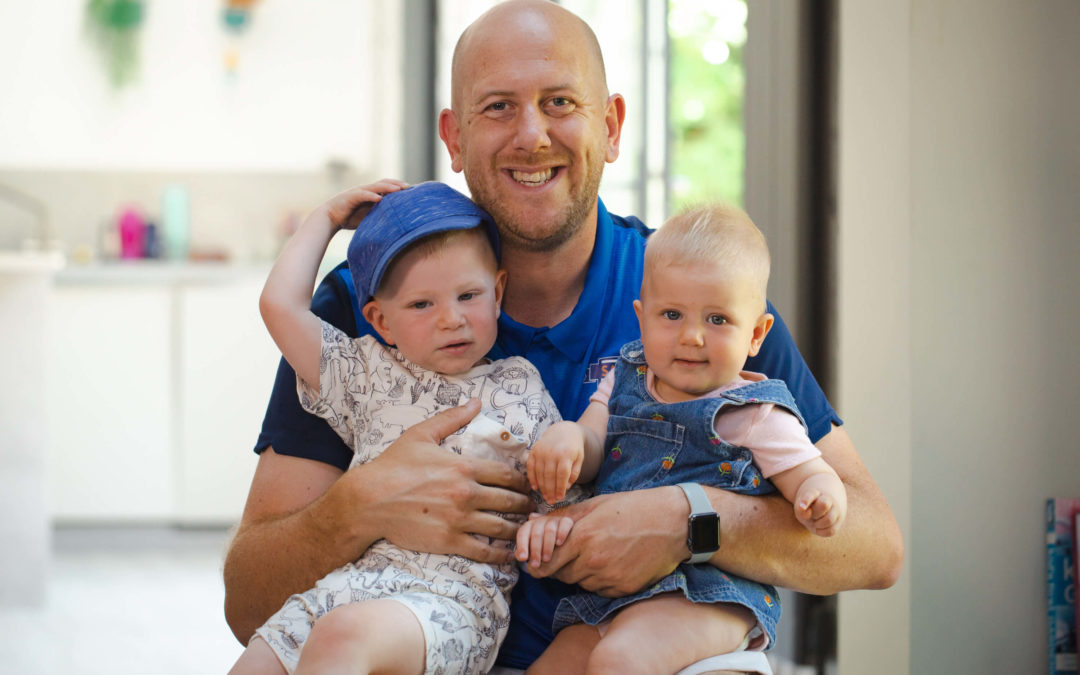We’ve put together a dads guide in choosing your baby’s nappy…
When it comes to nappies, there are four key choices you can make:
- To use disposable nappies
- To use reusable nappies
- To use hybrid nappies
- To not use nappies at all and practice elimination communication
- To use a mix of the above
Notoriously, many dads will admit that they are not keen on the idea of anything other than a disposable nappy, as anything else feels like too much hassle and too much involvement with poo! While it is a perfectly valid option to choose disposables – not all the myths (or any) about the alternative options are true, so make sure you have really looked into all the information first to make sure you make the right choice for your family.
Your baby will need a nappy from birth up to approximately 2.5-3 years old and potentially up to the age of 4.
So, here are the essential nappy facts when weighing up your baby’s bottom options!
The Environmental Impact
Disposable nappies simply have not been around long enough to really know how long they take to decompose, but estimates are at around 500 years for each nappy. It means the nappies that our babies are wearing now will still be decomposing when their grandchildren are in nappies!
Go Real estimates, with the vast majority of the 813,000 (and rising) babies born in England and Wales each year using disposables, that it means 3 billion disposable nappies are being used and put into landfill.
Some studies have also shown that a 40% carbon saving can be made through using reusable nappies compared to using disposables- including the increased energy even with washing them.
Impact on your pocket
For each year a baby is in nappies, he or she will need nearly 2,000 nappy changes! With potty training averaging at two and a half years, that is nearly 5,000 nappies per child.
At an average cost of 16p per disposable nappy, that’s around £800 you will spend on each child on nappies alone. Recent research by Go Real shows that parents can save anything from £150 to over a £1000 over the lifetime of using nappies, depending on their choice of nappies- And those savings stack up even further when you reuse nappies on a second- and a third child… the more children you have, the cheaper the ‘per nappy’ cost ends up! There is also a thriving second hand market in nappies, meaning you can even sell some of them on to recoup some of your investment.
In addition, some local councils offer a grant to help you buy reusable nappies – so if you are considering it as an option, check and find out if you could be saving even more money!
What about the cost of time?
Cloth nappies do require a little bit more effort. Throwing a dirty disposable nappy away is always going to be the quickest and easiest option.
However, the time involved really is only a little more, so again it is good to do your research on this. Cloth nappies no longer have to be soaked or boiled, or anything like that. Nappies go into a nappy bucket, and then you pop them into the washing machine – so you are looking at an extra couple of washes a week, and then time to dry them – just like with your own clothing or underwear!
Cloth nappies are also no more fiddly to put onto a baby than a disposable, so changing times are not longer either. Many of them now come with Velcro tabs (which work in exactly the same way as the ‘sticky’ tabs on a disposable) or alternatively, some come with poppers, just like on a babygrow.
Impact on Baby
It is interesting to consider from a baby’s point of view what they might find more comfortable to wear. Many parents who use cloth liken it to preferring cotton pants to disposable plastic pants, highlighting that surely the more comfortable your baby is, the happier they will be!
It is also worth considering what goes into the nappies you choose. There are no chemicals used in real nappies, whilst chemicals are used to make disposable nappies absorbent and hold baby’s urine. There has been some research to suggest that the widespread use of disposable nappies has played a significant role in the falling fertility in Western European men, although this has not been proven conclusively. However, many parents are opting for caution against putting something full of chemicals against one of the most sensitive and important parts of their child’s body – so this is something to also consider.
Making nappies a bit more fun?
Changing a dirty nappy may not always be the most entertaining part of the day, but some parents do find the whole process a bit more enjoyable when they are using cloth nappies which are a little more fun and funky in design. Cloth nappies come in a range of patterns, designs and styles which can make the whole experience a bit more interesting!
Is there are halfway house?
Many parents have the desire to want to use something which is more environmentally friendly and more comfortable for their baby to wear, but are not certain they want to commit to cloth or confident that they will be able to keep up with the washing.
There are a couple of options if you feel this way. You could choose to use a hybrid nappy – these have a washable outer layer, but the option of using a disposable inner layer, which you can throw away or even compost! This is a great compromise between the two worlds of disposable and cloth, and if later on you want to switch to using washable cloth pads inside and making them entirely reusable – the choice is yours!
You can also mix and match using disposable and cloth. Many parents choose to use different nappies in different ways – some using one for daytime and one for night-time, or one type for at home and another for out and about. Even mixing and matching in this way has benefits for the environment, your baby and your wallet!
Are nappies essential at all?
It’s not a silly question, as the answer is no! You could arguably save the most money by not using nappies at all. Some parents choose to use a practice called Elimination Communication with their child, which can also be known as Nappy Free or Baby-led Potty Training. This refers to using a potty rather than a nappy from birth (or within the first few months) by working with baby’s cues and positioning. Although it might sound like a strange idea at first, many parents will report it is not uncommon for baby to fill a fresh clean nappy, or to go as soon as the old nappy goes off – and it is this instinct to ‘wait’ that you can work with.
What if I want to really embrace the reusable?
You can! You can also look into using reusable wipes which have become more popular in recent years. If you are using cloth nappies already, then you store, wash and dry them alongside the cloth nappies – no extra work. You just keep wet wipes in a small watertight container. With it being estimated that you will use many thousands of baby wipes over the course of 5000 nappy changes, as well as for messy hands and faces, there is definitely another opportunity to save some money and benefit the environment even more!
What if I want to use disposables? Are they all the same?
No, there are different options here available too. You could choose to use biodegradable nappies, which are also compostable at home if you have space! In landfill, due to the way they are compressed with other refuse, they will still take an estimated 50 years to break down. Not as long as a standard disposable nappy, but still significant. In addition to this, as they break down they give off methane, a greenhouse gas – so if you are considering using them for environmental reasons, it is helpful to be aware that they are not a completely ‘green’ option either.
Biodegradable nappies are more likely to be made from environmentally friendly materials and to have been treated with fewer or no chemicals – so they will may be a gentler choice on your baby’s skin than a standard disposable. However, they will not be as kind to your pocket, as they are more expensive than their standard counterparts.
The choice is inevitably an individual one and it boils down to what matters to you.
If you are unsure and would like to explore your options before making an investment, why not contact your local nappy library, who can show you some of the options on the market and even let you try them with your baby so you can work out what works, or doesn’t, for you.
About the author
For more information check out www.goreal.org.uk to make your own mind up.









